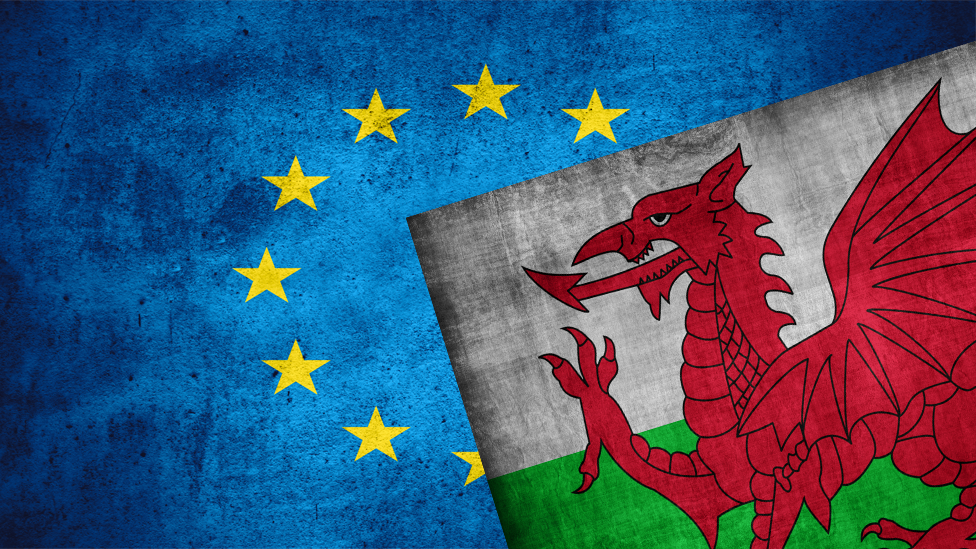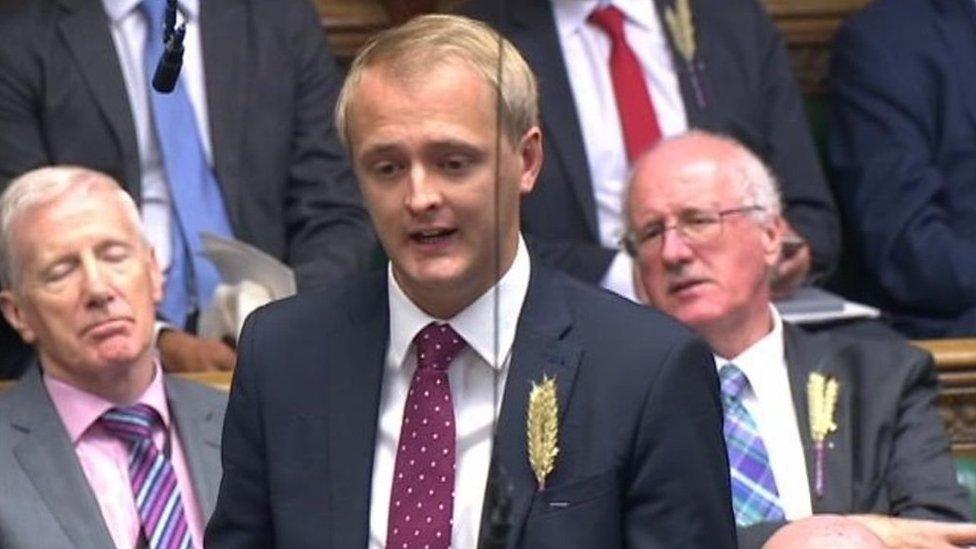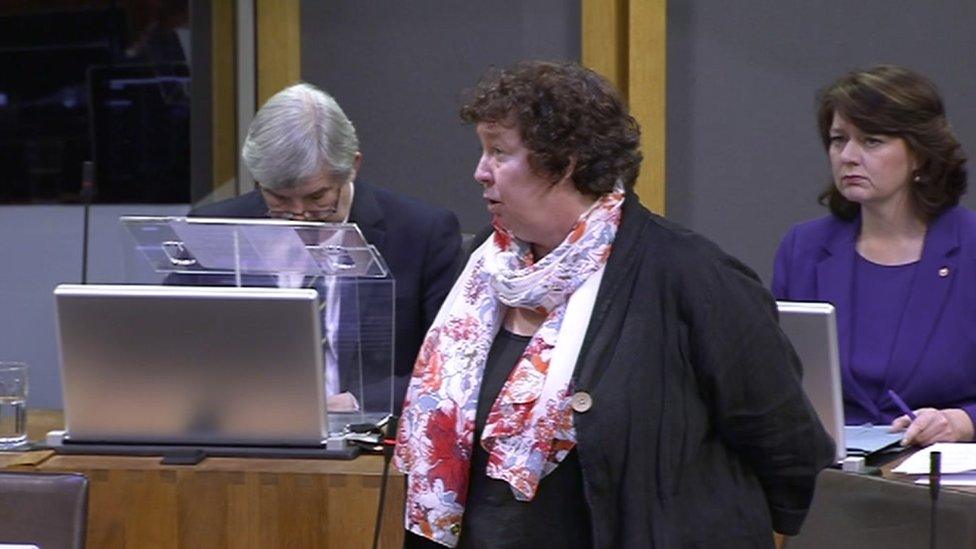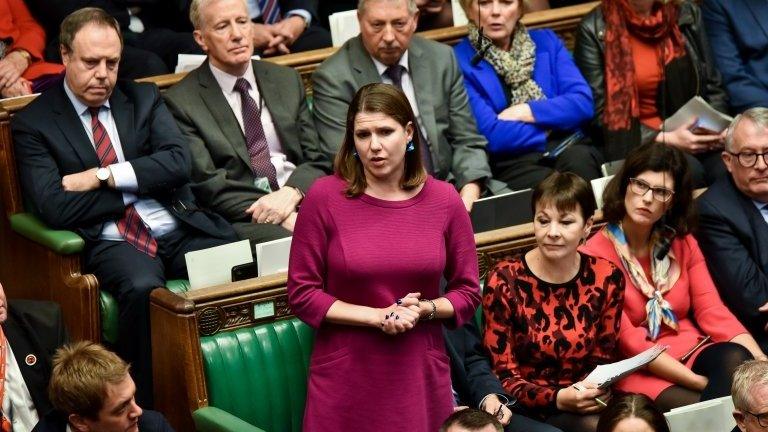General election 2019: What would a remain election pact mean for Wales?
- Published

Brexit has divided British politics. But some are putting hostilities aside.
Plaid Cymru, the Liberal Democrats and the Greens want to maximise the chances of Remain candidates being elected to parliament.
The three parties hope to stop Brexit, either through a referendum or by cancelling the withdrawal process outright.
So they are discussing a pact to avoid splitting the Remain vote. Where one of them has a decent chance, the other two will stand aside.
It happened at the Brecon and Radnorshire by-election in August. Plaid and the Greens bowed out in favour of Welsh Lib Dem leader Jane Dodds who won a majority of 1,425.
Would it work in a general election?

Ben Lake is hoping to hold Ceredigion for Plaid - there will be no pact with the Lib Dems in the seat
It would almost certainly swing the result in Ceredigion, the seat most likely to see a Lib Dem-Plaid contest. But it's off the table. Neither party will let go of that one.
Ynys Mon is high on Plaid's list of target seats. Labour is defending a majority over the Conservatives of 5,259 there. Plaid came third in 2017. Plaid would also love to take Llanelli from Labour, which has a majority of 12,024.
But in both seat, had Plaid hoovered up all the Lib Dem votes it still wouldn't have won in 2017. The Lib Dems won 479 votes on Ynys Mon and 548 in Llanelli. The Greens didn't stand in either seat.
Until 2015, Cardiff Central was a Lib Dem seat, but in 2017 they fell to third behind the Conservatives and Labour's majority grew to 17,196. That's a lot more than the combined Plaid Cymru and Green tally of 1,419.
In Montgomeryshire, the Conservatives' majority over the Lib Dems was 9,285 - again, more than the combined Plaid Cymru and Green vote of 2,484.
In ultra-marginal Arfon, a pact could help Plaid fend off Labour. Plaid has a majority of 92 there and the Lib Dems got 648 votes in 2017.
But it's a seat Plaid already holds, so it wouldn't make any difference to the parliamentary arithmetic.
A lot has changed since the 2017 election. We have a new prime minister and we're on our second withdrawal agreement. We've also had another Wales-wide election: this year's European elections, where Plaid beat Labour for the first time.
'Major, obvious limitation'
Even so, Professor Roger Awan-Scully, of Cardiff University, says there are "not many realistic chances for either of these two parties [Plaid and the Lib Dems] to win [additional] seats in Wales at the general election".
And if the goal is to Remain, then there is a "major, obvious limitation", he says.
What about pro-Remain Labour candidates?
Prof Awan-Scully says: "You have the prospect, for instance, of a strongly pro-Remain Labour MP like Anna McMorrin, in a very competitive marginal seat like Cardiff North, having to fight against both Plaid and the Lib Dems, as well as her Conservative challenger.
"That does not help the pro-Remain cause."
- Published3 November 2019

- Published30 October 2019
